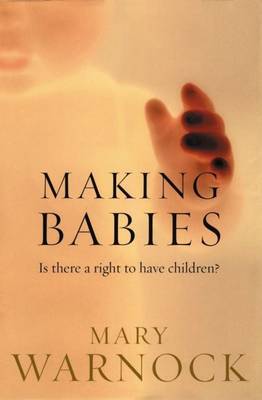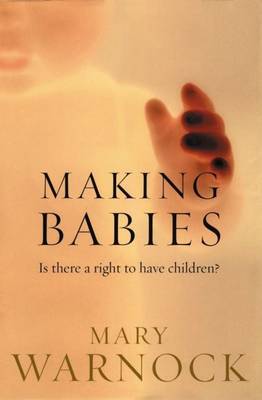
- Afhalen na 1 uur in een winkel met voorraad
- Gratis thuislevering in België vanaf € 30
- Ruim aanbod met 7 miljoen producten
- Afhalen na 1 uur in een winkel met voorraad
- Gratis thuislevering in België vanaf € 30
- Ruim aanbod met 7 miljoen producten
Zoeken
€ 31,45
+ 62 punten
Uitvoering
Omschrijving
Is there a such thing as a universal right to have children? Should medical assistance to have children be available to everyone? Are all methods of assisted reproduction legitimate? The development of new reproductive technologies has spawned heated debate and deep controversy about how fertility treatments should be used clinically and by whom they should be controlled. Many individuals and groups claim access to assisted reproduction as an essential right--not only clinically infertile heterosexual couples, but also single women, gay couples, post-menopausal women, and career-oriented couples who wish to delay having children. Others argue that the simple desire to have children cannot be the sole criteria to determine whether assisted reproduction should be a human right. Furthermore, some object to providing fertility treatment on the basis of age, sexual orientation, or other lifestyle features. Mary Warnock steers a clear path through the web of complex issues underlying these divergent views. She analyzes what it means to claim something as a "right," examines the ethical problems faced by particular types of assisted reproduction, including artificial insemination, in-vitro fertilization, and surrogacy, and argues that in the future human cloning may well become a viable and acceptable form of treatment for some types of infertility.
Specificaties
Betrokkenen
- Auteur(s):
- Uitgeverij:
Inhoud
- Aantal bladzijden:
- 126
- Taal:
- Engels
Eigenschappen
- Productcode (EAN):
- 9780192803344
- Verschijningsdatum:
- 26/09/2002
- Uitvoering:
- Hardcover
- Formaat:
- Genaaid
- Afmetingen:
- 198 mm x 135 mm
- Gewicht:
- 238 g

Alleen bij Standaard Boekhandel
+ 62 punten op je klantenkaart van Standaard Boekhandel
Beoordelingen
We publiceren alleen reviews die voldoen aan de voorwaarden voor reviews. Bekijk onze voorwaarden voor reviews.











